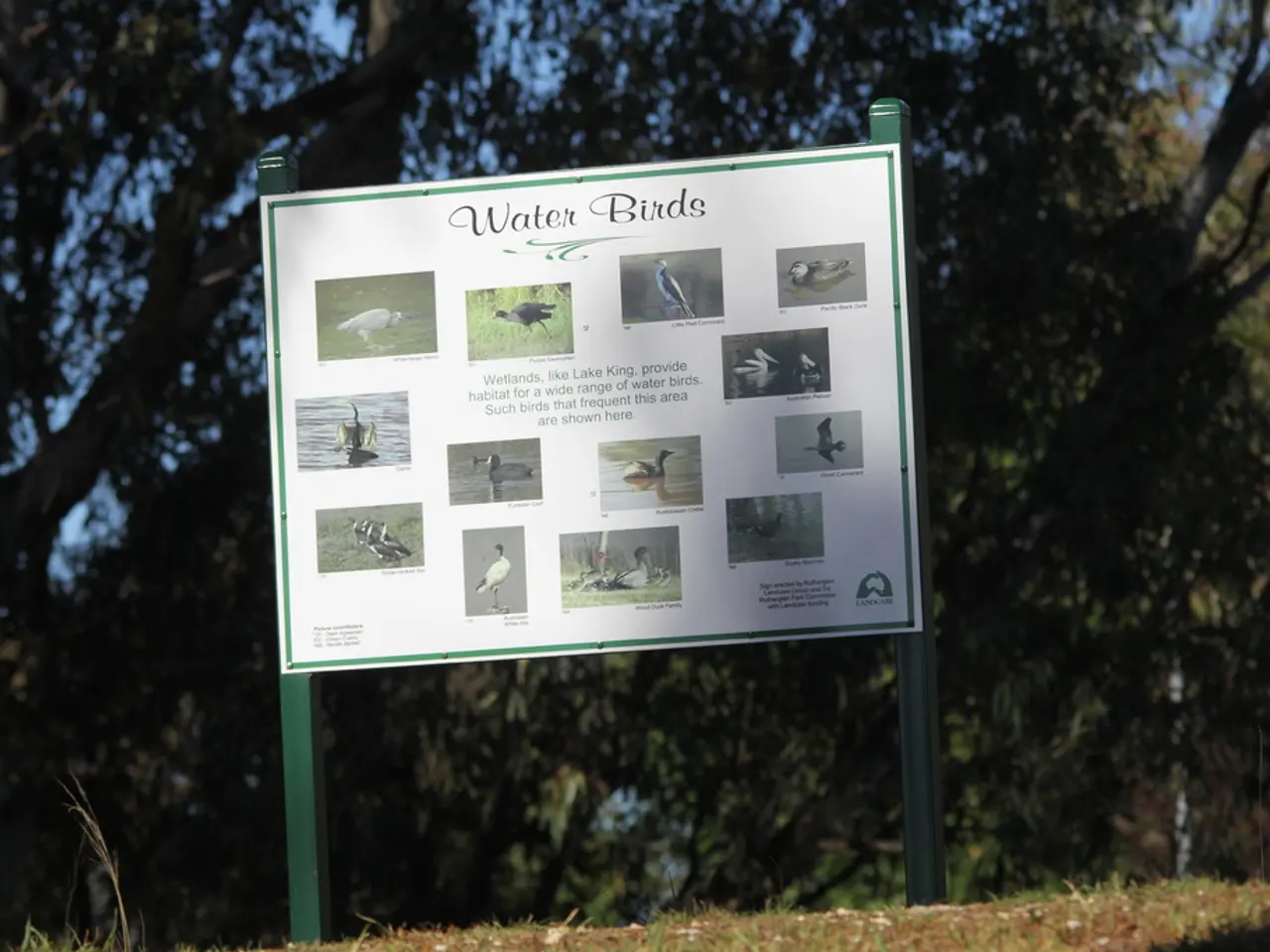Tale of the Resurrection: European Journey of a Once-Lost Bird Directed by Scientists
In a remarkable tale of hope and determination, the reintroduction of the Northern Bald Ibis (Waldrapp) to Europe is proving that with the right strategies and dedication, it's possible to bring a species back from the brink of extinction. This ambitious project, spearheaded by the Waldrappteam, a conservation and research group based in Austria, has been ongoing since 2002.
Konrad Lorenz, a renowned ethologist, first conceived the idea of using airplane assistance to teach the Northern Bald Ibis migration routes. The Waldrappteam's ultimate goal is to see the Central European population of Northern Bald Ibis exceed 350 birds and become self-sustaining by 2028.
The Northern Bald Ibis, once widespread across Europe, North Africa, and the Middle East, was hunted to extinction in Europe. However, the efforts of the Waldrappteam have moved the species from critically endangered to endangered, representing the first attempt to reintroduce a continentally extinct migratory bird species.
The key challenge lies in the fact that the Northern Bald Ibis lacks the knowledge of where to migrate due to the absence of wild-born elders. To address this, the scientists foster the young ibises and take on the role of their surrogate parents, teaching them how to migrate. The relationship between the foster parents and the birds is critical to the success of the migration, with the bond formed early in the chicks' lives allowing the birds to trust their human guides.
During migration, the foster parents guide the birds across Europe using microlight aircraft. This innovative approach has proven successful, with the first Northern Bald Ibis migrating independently back to Bavaria from Tuscany in 2011, a journey of over 550 kilometers. The Waldrappteam's efforts have since resulted in the migration of numerous birds across Europe, with 36 birds successfully making the journey from Bavaria to Andalusia, Spain, in 2023, covering a distance of over 2,800 kilometers.
The legacy of the Northern Bald Ibis reintroduction project will be felt not only in the skies over Europe but also in the broader field of conservation. The Waldrappteam's work is not just saving one species; they are paving the way to reintroduce and protect other threatened migratory species.
Esther Evangeline, MSc Zoology, a key member of the Waldrappteam, is committed to making a positive impact in the field of animal welfare. In her free time, she enjoys embroidery and sewing, and is passionate about Bharathanatyam, an Indian classical dance form. Evangeline, like many on the team, is dedicated to advocating for animals and ensuring their well-being.
The success of the Northern Bald Ibis reintroduction project serves as a testament to what can be achieved with perseverance, innovation, and a shared commitment to conservation. As the project continues, we eagerly await the day when the skies over Europe are once again filled with the distinctive silhouette of the Northern Bald Ibis.








